
A series of resources designed to help patients with learning difficulties understand the procedures, sequence of events and people associated with a visit to hospital.
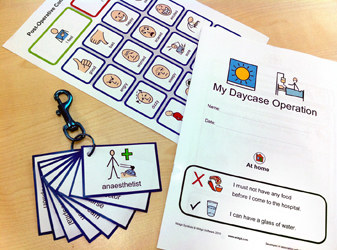
Using symbols as well as words helps children and adults with all abilities to make sense of what is happening to them in an often unfamiliar and frightening environment.
The materials can be used before the hospital visit, to introduce the patient to the procedures that are likely to take place and familiarise them with the symbols.
Although there may be minor differences in procedures from one hospital to another, the overall pattern will be very similar.
Each pack consists of a preparatory time-line leaflet, which is designed to be generic for use in a variety of settings, and accompanying conversational flashcards to provide flexibility in approach and cues for each step at the time of treatment.
The flashcards can be cut up and used as cue cards during the visit to prepare the patient for what is happening or going to happen next. They also allow the procedures to be practised at home prior to the visit.
A selection of the flashcards can be used to create an individual time-line on the day of surgery, to suit the needs of each patient. These can be arranged on a board or vertical strip on a wall, allowing the child to work through them in sequence and discard a symbol as each step is completed.
For patients requiring sedative premedication, flashcards can be used to encourage medicine to be taken. Eating, drinking and going home provide rewards at the end of the time-line..

This pack is made up of three elements:
This helps younger patients to demonstrate their feelings and what they want, even if they find it hard to say the words. Patients can easily point to the relevant information that they wish to communicate.
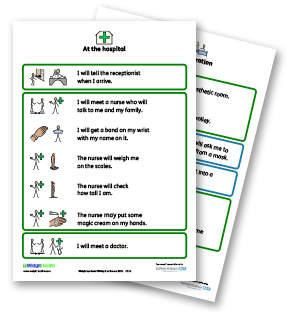
Daycase Operation booklet
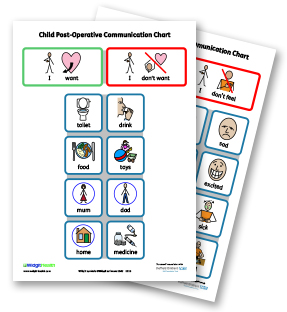
Post-Operative Chart
This is a modified version of the daycase operation pack, made more suitable for use by adults with learning disability or a language or communication disorder.
It may also be useful to assist patients for whom English is not their first language in the absence of an interpreter. A post-operative communication chart for adults is also included to assist patients in describing their symptoms and needs.
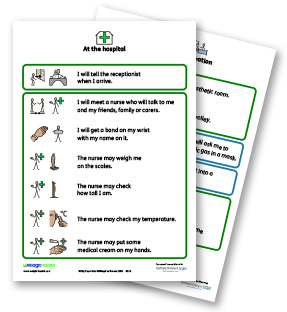
Daycase Operation booklet
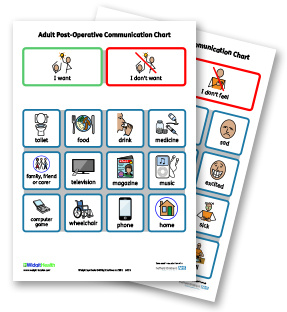
Post-Operative Chart
This pack covers the preparation and processes associated with inpatient surgery, including post-operative care. It is designed with children in mind, but could also be used by adult patients. The leaflet describes the processes of admission, investigation and anaesthesia. The flashcards can be used flexibly to create a time-line for each post-operative day as required.
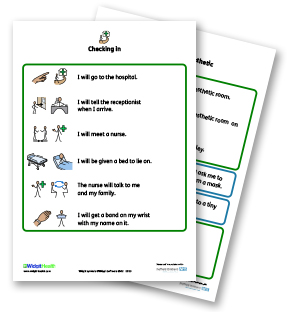
My Stay in Hospital booklet
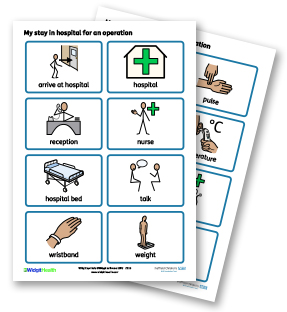
My Stay in Hospital flashcards
This time-line leaflet and set of flashcards covers a visit to an outpatient clinic, allowing for the possibility of a variety of additional examinations, including sight or hearing tests, blood tests or a visit to the plaster room.
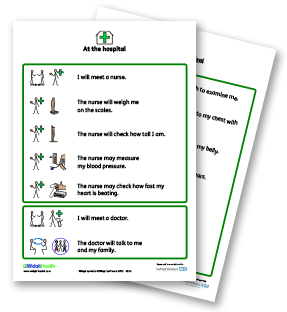
My Hospital Clinic Visit booklet
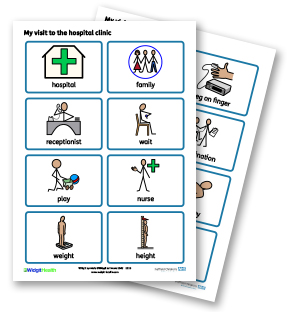
My Hospital Clinic Visit flashcards
This pack consists of a comprehensive set of time-lines covering the steps associated with investigations in the xray department. It is designed to assist patients who, with appropriate support, may be able to manage scans and investigations without anaesthesia or sedation, and includes CT and MRI scans, isotope, ultrasound, plain xrays and contrast tests.
Each section of the leaflet can be used independently as required. The flashcards allow an individualised approach at the time of the investigation, to include or remove steps as appropriate, e.g. cannulation for injection of a contrast agent.
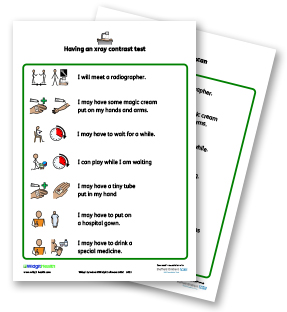
My Xray or Scan booklet
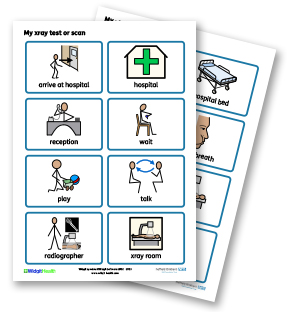
My Xray or Scan flashcards
This pack provides the information required for patients attending a preoperative assessment clinic and describes the various investigations which might be required. The time-line leaflet allows patients and carers to prepare in advance for the visit and flashcards allow flexibility of approach and cues for each required step on the day.
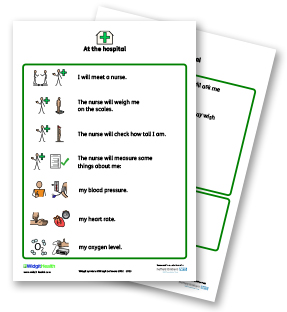
Preoperative Assessment booklet
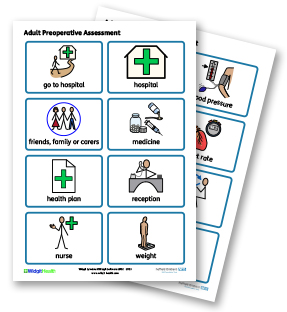
Preoperative Assessment flashcards
![]() For more information on our symbol software
For more information on our symbol software
and educational products, visit widgit.com